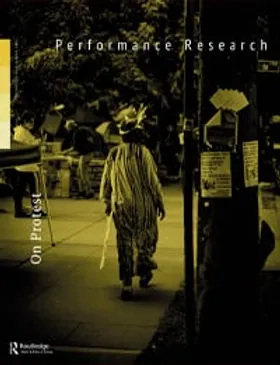People’s present: an interview with Howard Zinn
American historian and activist
Howard Zinn ponders President-Elect
Obama’s positions on peace and imperial power
by MATT JONES
Few people are as unimpressed with the Bush presidency and the war in Iraq as American social historian, playwright and anti-war activist Howard Zinn. An opponent of U.S. military interventions since Vietnam, Zinn got his distaste for war after running high altitude bombing raids over Europe in World War II. Meeting survivors of Hiroshima and Nagasaki later convinced him that the disconnect between military decisions and their consequences on the ground inevitably brought with it massive, unnecessary suffering and devastation. He would spend the ’60s and ’70s forging his academic career and agitating against the Vietnam War.
Few people are as unimpressed with the
Bush presidency and the War in Iraq as American social historian,
playwright and anti-war activist Howard Zinn. An opponent of US
military interventions since Vietnam, Zinn got his distaste for war
after running high altitude bombing raids over Europe in World War
Two. Meeting survivors of Hiroshima and Nagasaki later convinced him
that the disconnection of military decisions from their consequences
on the ground inevitably brought with it massive, unnecessary
suffering and devastation. He would spend the 60s and 70s forging his
academic career and agitating against the Vietnam War.
In 1980, Zinn published his piece de
résistance, A People’s History of the United States, a
grand survey of everything usually left unsaid in the triumphalism of
mainstream American history, from the decimation of native
populations during colonization through slavery and up to the
invasion of Iraq. But the book doesn’t just dwell on the negative.
Zinn’s real strength is as a storyteller, and his book uses
anecdotes to tell the stories of slave revolts, strikes by garment
workers and anti-conscription riots. The book has now sold over a
million copies in its multiple variations, the latest of which is a
graphic novel version called A People’s History of American
Empire (Metropolitan Books, 2008).
Zinn will be in Montreal next week at
the invitation of his Quebec publisher Lux éditeur. The
Mirror caught up with him on the phone to talk about the war,
the end of the Bush era and the future of the American Empire.
Mirror: So, there’s a new guy
moving into the White House. What do you make of that?
Howard Zinn: All of us [in the
progressive movement] were really terrified of a McCain victory and
with an Obama victory we are cautiously hopeful. Knowing that Obama
has a lot of shortcomings in his foreign and domestic policies,
there’s a slight opening that could be filled with traditional
conservative, old-line Democrats – which would be a disaster – or
it could be filled by all those young, enthusiastic Obama supporters
rushing into that opening and demanding that Obama not move toward
the centre, as he has been doing, but move towards a more progressive
agenda.
M: Does this election change
anything for the American Empire?
HZ: Not clear yet. The American
Empire is something that has been supported and advanced by every
president of the United States since the beginning: Democrat or
Republican, liberal or conservative. So Obama has a very difficult
job if he intends to change that. Of course, the time is right for
him to change that because the American Empire – after a long, long
period of expansion – is now going to start a period of decline. If
he is going to go with the flow of history and with the flow of
morality then he will speed that decline and call a halt to American
military expansion in the world and declare that America does not
want to be an imperial power, that America wants to be a peace-loving
nation.
M: Can you see him doing that?
HZ: That is a very bold agenda.
After all, Obama said we’re willing to withdraw our troops from
Iraq – although at a rather slow pace – but he wants to send
troops to Afghanistan. Obama talks about having a larger military
force. He’s even talked about attacking Pakistan. So Obama does not
give the signs that he is someone who is ready to dismantle the
American Empire.
M: Do you think there’s a risk
the American Left will become complaisant now that there’s a “good
guy” in office?
HZ: It’s easier to mobilize
people against a government which is obviously terrible, like the
Bush administration. On the other hand, when you have an
administration which is as Draconian and as threatening as the Bush
administration, it also intimidates people and makes them cynical.
With somebody like Obama, there’s a possibility that people will
sit back and say, well we’ve elected the man we wanted, now let him
do what he wants. But there’s also a possibility that when people
who have wanted Obama in office in order to get us out of war and in
order to make fundamental changes in our economic program, when these
people see that there’s no real change then maybe they will be
ready to mobilize in a movement that demands such change.
M: What’s next for you?
HZ: I keep writing little
pieces, which people can look up on my website: howardzinn.org.
I’ve also been working on a television documentary based on A
People’s History of the United States. We have socially minded
actors, like Danny Glover and Vigo Morres, reading historic documents
and we have musicians like Bruce Springstein and Eddie Vedder [doing
the music] and there’s commentary by me. We’re now in the editing
process, hoping to get something into the Sundance Film Festival next
January.
Zinn speaks at UQAM’s
Marie-Gérin-Lajoie room (Judith-Jasmin Pavilion: 405
Sainte-Catherine East) on Wednesday November 19 at 7:30 p.m. (doors
6:45 p.m.). Entry is free, but donations will be collected to support
activist organizing in Montreal. See www.luxediteur.com
for details
Montreal Mirror 13 November 2008



Comments
Post a Comment